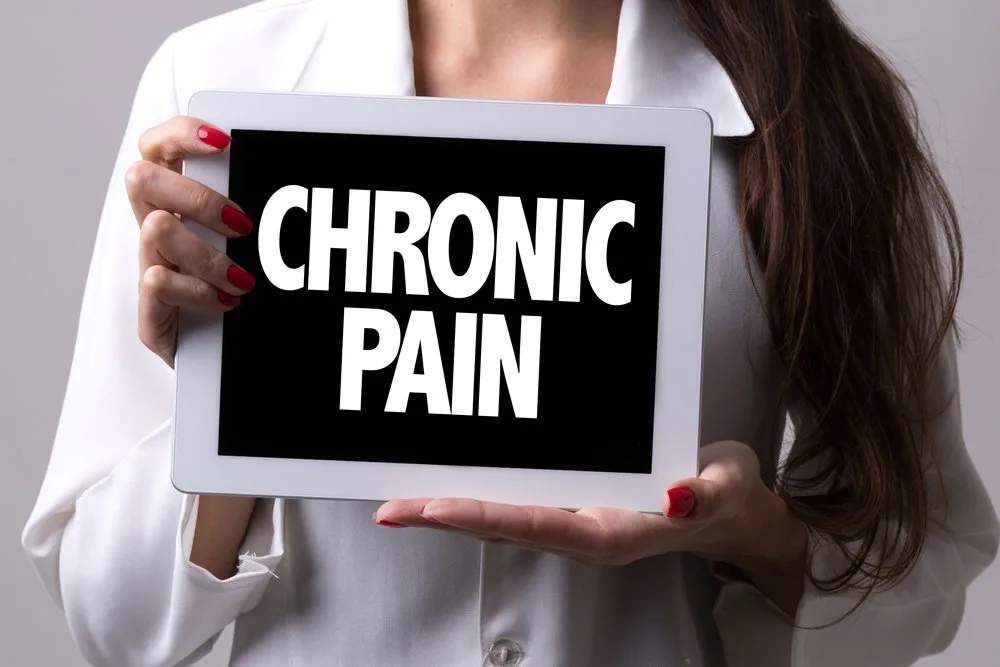Living life to the fullest when you have a chronic pain disorder may feel like an impossibility. However, chronic pain may be with you for the rest of your life, and this means that you need to find ways to live well with the issues and discomfort that it causes you. To ensure that you can enjoy the rest of your life in a happy and healthy way, here are some of the best steps that you can take to live a high-quality life hand in hand with your chronic pain.
Try CBD Oils
Many chronic pain sufferers have been through a cycle of different treatments and products which could potentially help them, and it can be extremely difficult to find the right one for you. However, if you are sick of prescription painkillers and the more invasive treatments that are often prescribed by medical professionals, you should consider looking at the possible alternatives that are currently being researched.
For instance, while there is no hard evidence yet to suggest that CBD oil can relieve your chronic pain, its anti-inflammatory properties and a string of trials have suggested that it could potentially reduce the discomfort that you are experiencing. In order to live better with your condition, consider investing in ISO hemp oil that may help in reducing the amount of pain that you experience.
Get a Handle on Meditation
Meditation and mindfulness are only starting to reach the top of the list of coping mechanisms for those with chronic pain. Meditation helps you to reduce the stress that you may experience while dealing with chronic pain, and it can also help you to reassess your mindset in response to your condition. However, there is evidence to suggest that meditation may help in more ways than one.

Photo by Dylan Sauerwein on Unsplash
Meditation has now been proven to help reduce your physical experience of pain as it can boost the parts of the brain that are focused on pain processing. You can start meditating today by downloading a mindfulness application onto your phone, following guides online, or by attending a meditation group in your local area. This will allow you to de-stress with like-minded people who can provide you with the support and encouragement that you need.
If you are uncertain about meditation, you should try deep breathing techniques, which are an easier and simpler way to relax your body and mind from any location. There are many techniques that you can adopt to start deep breathing. For instance, you should choose whether you are going to sit or lie flat. Then, you should breathe in through your nose, making sure that your stomach pushes out when you do so. Next, you should breathe out, allowing your stomach to deflate. By doing this slowly, you will be able to pave the way for a positive mindset and relieve any excess tension in your body.
Keep Moving
Although your chronic pain may make you want to curl up under the duvet and avoid exercise at all costs, there are proven benefits of exercise and movement for chronic pain sufferers. Not only can exercise keep the rest of your body and its functions operating to their maximum potential as you get older, but it can also minimize the risk of stress and the mental health issues that chronic pain can trigger. Additionally, it may even help to reduce your sensation of pain by releasing endorphins into your body.
Chronic pain may give you mobility issues that mean that you struggle to exercise. If this applies to you, then you should go on short walks, use gentle exercise equipment, such as step machines, and take up swimming, which puts less pressure on the joints and muscles than land-based options.
There are also many exercises that you could try doing at home if you struggle to leave the house for lengthy periods of time. For instance, games consoles and DVDs give you the option to find an activity that matches your ability. This can help you to feel more comfortable while you are exercising.
Eat Healthily
The way that you look after your body can greatly impact the extent of your chronic pain. There is evidence that suggests that eating a healthy diet can reduce your pain and prevent it from worsening over time. Try to eat a variety of healthy foods that are recommended to adults as they get older, such as superfoods like broccoli and ample fruit and vegetables.
Your diet should also consist of a large number of whole grains and fish, as well as beans, seeds, olive oil, and yogurt. Certain spices may also be beneficial to those suffering from chronic pain conditions, such as arthritis. For instance, turmeric, rosemary, and cinnamon all have anti-inflammatory properties and restrict cell damage. By incorporating these within a normal, balanced diet, you will be able to look after your body, your mental health, and your chronic pain condition at the same time.
Reassess Prescription Painkillers
Although prescription painkillers can be incredibly useful and even life-altering for chronic pain sufferers, prescription painkillers might also be harmful if they are taken for a long period of time. For instance, long-term painkiller usage can cause symptoms such as migraines, headaches, nausea, breathing problems, and digestive issues, many of which are similar to those with common chronic pain issues.
To make sure that you can live pain-free for longer, you should consider asking your doctor to reduce your painkiller dosage as much as possible or try alternative treatments, such as chiropractic methods of care.
Get a Great Healthcare Team
The key to living a life with chronic pain that is both long and happy is to find a great healthcare team. You need to be able to trust your healthcare team, and they should provide you with support in terms of the struggles that you face over a long period of time. For chronic pain sufferers, it can be disarming to visit multiple GPs on a regular basis, who may not be familiar with your medical history or who may not be able to find the best treatments for your individual condition.
You will also be happier to visit the doctors and to tell them of any developments in your condition. This will ensure that you do not let any issues go untreated due to your unhappiness with a certain medical team.
Even if you switch medical teams until you find one that you trust, choosing a great healthcare team will allow you to be comfortable and feel as if you are in control of your own care and pain management.
Reduce Stress
Reducing stress is paramount when you suffer from a chronic pain condition. Doing so will ensure that you are able to live a happier and contented life. Chronic pain can often cause stress due to lifestyle changes and the limitations that are associated with chronic pain. However, reducing stress is vital if you want to minimize the discomfort that you experience.
This is because, when we are stressed, more tension is created in the nervous system and, therefore, the muscles. To better manage your stress, you should make sure that you have a good work/life balance. You should also socialize with others. Additionally, join a support group as they can help you to overcome your problems.
A pain disorder will increase anxiety
Not only this, but people with chronic pain are four times more likely to develop mental health issues such as anxiety and depression, which can hinder your lifestyle and even lower your life expectancy.

Photo by Anh Nguyen on Unsplash
Signs of depression and anxiety include:
- feelings of irritability and anger
- low mood
- chest pain
- quick heartbeat
- shaking
- excessive worrying,
- changes to your sleep patterns or appetite
- a lack of interest in activities that you usually enjoy.
If you are experiencing any of these symptoms, you should seek the advice of a medical professional. They may advise you to visit a counsellor, attend group therapies, or prescribe you with medication, such as anti-depressants.
Deal with Cognitive Issues
Cognitive issues have long been one of the most problematic symptoms of chronic pain. This is termed fibro fog for those suffering from fibromyalgia. However, although chronic pain can impact your cognitive performance, you do not have to let it.
Thus, you should focus on improving your sleep patterns, and avoiding caffeinated drinks like tea and coffee. You should also use a calendar app, and create a routine for yourself. Doing the aforementioned will help you cope with some of the cognitive issues that chronic pain causes.
Limit Alcohol and Smoking
Alcohol and smoking can have a number of negative effects on your health. Many people pick up bad habits, such as alcohol and smoking, in order to be able to cope with their condition. Although this might give you some short-term relief, this respite is temporary.
In the long term, alcohol can lead to a worsening in joint pain. It can also trigger a bad reaction when combined with prescription medication. In terms of smoking, a higher percentage of people with chronic pain smoke than the general population. Nonetheless, smoking can damage your pain management systems and even worsen your pain.
Therefore, you should try to cut down on both, or set a limit on the amount that you consume. It’s also advisable to avoid situations where you may be tempted to smoke or drink. If you are struggling with alcohol or smoking, you should reach out to a medical professional or find a support group.
Manage Your Weight
Maintaining a healthy weight is important for conditions such as arthritis as the condition can worsen if you put excess pressure on your joints.
As people are prone to put on weight as they get older, you should take steps to maintain a healthy weight as soon as possible. You can do this by discussing your diet with a nutritionist, cutting out tempting snacks, measuring your portion sizes, eating regular meals, and committing to the right amount of exercise a week for your age group.
Find Support
Everyone knows that chronic pain is difficult to cope with physically. However, many do not take into account the emotional impact that chronic pain can have. Therefore, it’s important to have a group of supportive friends and family around you.
They can help you to complete daily chores when you are struggling. It can also provide a listening ear, and can even encourage you to socialize when you feel up to it. If you do not feel comfortable with any family members or friends, you should look at what formal support is out there for you. This can include charities and local groups that help people with chronic pain or specific medical conditions.
The Bottom Line
Living life to the fullest when you have chronic pain is something that many people long for. There are many ways that you can achieve the lifestyle that you want. It is still possible even if your chronic pain lasts far into the future. This guide covers many of the best steps that you can try in order to get back on your feet after a diagnosis.



